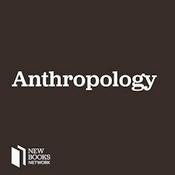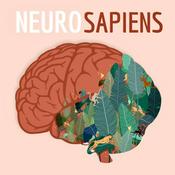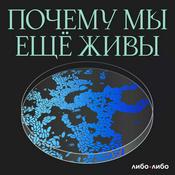1135 épisodes
Jason Cons, "Delta Futures: Time, Territory, and Capture on a Climate Frontier" (U California Press, 2025)
23/2/2026 | 51 minA free e-book version of Delta Futures is available through Luminos, University of California Press’s Open Access program. Visit www.luminosoa.org to learn more.
Delta Futures: Time, Territory, and Capture on a Climate Frontier (U California Press, 2025) explores the competing visions of the future that are crowding into the Bengal Delta’s imperiled present and vying for control of its ecologically vulnerable terrain. In Bangladesh's southwest, development programs that imagine the delta as a security threat unfold on the same ground as initiatives that frame the delta as a conservation zone and as projects that see the delta’s rivers and ports as engines for industrial growth. Jason Cons explores how these competing futures are being brought to life: how they are experienced, understood, and contested by those who live and work in the delta, and the often surprising entanglements they engender - between dredgers and embankments, tigers and tiger prawns, fishermen and forest bandits, and more. These future visions produce the delta as a “climate frontier,” a zone where opportunity, expropriation, and risk in the present are increasingly framed in relation to disparate visions of the delta's climate-affected future.
Jason Cons is Associate Professor of Anthropology at the University of Texas at Austin and author of Sensitive Space: Fragmented Territory at the India-Bangladesh Border (2016, University of Washington Press).
Yadong Li is an anthropologist-in-training. He is a PhD candidate of Socio-cultural Anthropology at Tulane University. More details about his scholarship and research interests can be found here.
Learn more about your ad choices. Visit megaphone.fm/adchoices
Support our show by becoming a premium member! https://newbooksnetwork.supportingcast.fm/anthropologyAidan Seale-Feldman, "The Work of Disaster: Crisis and Care Along a Himalayan Fault Line" (U Chicago Press, 2025)
23/2/2026 | 38 minThe Work of Disaster: Crisis and Care Along a Himalayan Fault Line (U Chicago Press, 2025) is a compelling portrait of post-disaster imaginaries of repair in Nepal. In a world of cascading disasters, what are the consequences of transient care? In 2015, a 7.8-magnitude earthquake and equally powerful aftershock struck the central region of Nepal. The disaster claimed over 9,000 lives and inspired a surge of humanitarian concern for the mental health of Nepali people. In The Work of Disaster, based on extensive fieldwork in the region, anthropologist Aidan Seale-Feldman examines what disaster generates, and the fraught relationship between crisis and care. Moving between NGO offices, mountain trails, therapeutic interventions, and affected villages, Seale-Feldman tells the story of an emergent “mental health crisis” and the forms of care that followed in the disaster’s wake. She also analyzes how emergency services transform the places they seek to assist; the challenges of psychiatric support provided by international organizations; and the place of mental health counseling in a modern biopolitical reality. The Work of Disaster reveals the contiguous violence and gentleness of humanitarian encounters, engaging with broader debates about worldmaking and the ethics of care.
Aidan Seale-Feldman is a medical and psychological anthropologist and Assistant Professor of Anthropology at the University of Notre Dame.
Elena Sobrino is an anthropologist and Lecturer in the program in Science, Technology, and Society at Tufts University.
Learn more about your ad choices. Visit megaphone.fm/adchoices
Support our show by becoming a premium member! https://newbooksnetwork.supportingcast.fm/anthropologyWendy Wolford, "The Plantation Ideal: Landscapes of Extraction in Mozambique" (U California Press, 2025)
21/2/2026 | 1 h 6 minPlantations have been the privileged tool of colonial rule and extraction in Mozambique for more than one hundred years despite never having delivered sustained economic or social benefits. Drawing on extensive archival and qualitative contemporary research, The Plantation Ideal: Landscapes of Extraction in Mozambique (U California Press, 2025) by Dr. Wendy Wolford offers new insights into plantation economies, histories, and landscapes. Dr. Wolford tells the story of how the largely failed pursuit of plantation production has shaped agricultural science, government rule, life on the land, and community development in Mozambique from the harshest years of Portuguese colonization to the present.
This interview was conducted by Dr. Miranda Melcher whose book focuses on post-conflict military integration, understanding treaty negotiation and implementation in civil war contexts, with qualitative analysis of the Angolan and Mozambican civil wars. You can find Miranda’s interviews on New Books with Miranda Melcher, wherever you get your podcasts.
Learn more about your ad choices. Visit megaphone.fm/adchoices
Support our show by becoming a premium member! https://newbooksnetwork.supportingcast.fm/anthropologyDarién J. Davis, "'Black Orpheus' and the Globalization of Afro-Brazilian Culture" (Rutgers UP, 2026)
18/2/2026 | 55 min“Black Orpheus” and the Globalization of Afro-Brazilian Culture (Rutgers UP, 2026) is the first historical study in English to examine the development, production, and reception of the 1958 film Black Orpheus and its legacy in the 1960s and 1970s. It focuses on the making of the film and the trajectories of the major actors and musicians who helped construct an image of Black Brazil and provides an analysis of the globalization of Afro-Brazilian images and music in France and the United States in the wake of the movie’s success. Using archival sources, interviews, and the secondary literature from France, Brazil, and the United States, this book reveals information about the cultural histories of all three countries and gives readers new insight into the trajectories of diverse actors such as Breno Mello, Marpessa Dawn, and Léa Garcia and performers such as Agostinho dos Santos, Baden Powell, and Maria D’Apparecida.
Darién J. Davis is a professor and the chair of Africana studies at Rutgers University–Newark. He is the author of four books, three edited volumes, and more than forty essays and articles in English, Spanish, and Portuguese.
Reighan Gillam is Associate Professor in the Department of Latin American, Latino, and Caribbean Studies at Dartmouth College. Her research examines the ways in which Afro-Brazilian media producers foment anti-racist visual politics through their image creation. She is the author of Visualizing Black Lives: Ownership and Control in Afro-Brazilian Media (University of Illinois Press).
Learn more about your ad choices. Visit megaphone.fm/adchoices
Support our show by becoming a premium member! https://newbooksnetwork.supportingcast.fm/anthropologyFeminism and Critical Hindu Studies with Shreena Gandhi, Harshita Kamath, Sailaja Krishnamurt, and Shana Sippy
16/2/2026 | 1 h 1 minThis episode features a conversation with the founding members of the Feminist Critical Hindu Studies Collective, also known as the Auntylectuals. We began with each of them reflecting on their pathway into Hindu Studies and how the questions of caste and gender shaped their approaches to this field. We then discussed their motivations for starting the collective and what interventions they hoped to make through it. This took us deeper into some thorny topics: caste as a form of embodied knowledge that is often accompanied by the denial of its continued social power; the politics of Hinduism in North America where Hindus are both predominantly upper caste and a racial minority; the relationship between Hinduism and Hindutva, or Hindu nationalism; the traffic in language and tactics between Hindutva and Zionism; and the efforts to push back against the movement to make caste a protected category in U.S. anti-discrimination law.
Guests:
Shreena Gandhi: Professor of Religious Studies, Michigan State University
Harshita Kamath: Professor of Telugu Culture, Literature, and History, Emory University
Sailaja Krishnamurti: Professor of Gender Studies, Queen’s University
Shana Sippy, Professor of Religion, Centre College
Mentioned in the episode:
Rajiv Malhotra: an ideologue of the Hindu nationalist movement in the U.S. and founder of Infinity Foundation
Harshita Kamath, Impersonations: The Artifice of Brahmin Masculinity in South Indian Dance
Amar Chitra Katha: an Indian comic book publisher whose comics are hugely popular and widely available in India and the Indian diaspora.
Sailaja Krishnamurti, “Learning about Hindu Religion through Comics and Popular Culture,” David Yoo and Khyati Y Joshi eds. Envisioning Religion, Race and Asian Americans, Honolulu: University of Hawai’i Press, 207-226, 2020.
Babri Masjid: a 16th century mosque that became the target of Hindu nationalist mobilization and was destroyed by vigilante mobs in December 1992.
Marko Geslani, “A Model Minority Religion: The Race of Hindu Studies,” American Religion, forthcoming.
Thenmozhi Soundarajan, The Trauma of Caste
Sarah Ahmed, Queer Phenomenology: Orientations, Objects, Others
Feminist Critical Hindu Studies Collective, “Feminist Critical Hindu Studies in formation”
Feminist Critical Hindu Studies Collective, “Hindu fragility and the politics of mimicry in North America”
Feminist Critical Hindu Studies Collective, “Hinduphobia is a smokescreen for Hindu nationalists”
Shana Sippy and Sailaja Krishnamurti, “Not all Hinduism is Hindutva, but Hindutva is in fact Hinduism”
Shana Sippy, “Strange and Storied Alliances: Hindus and Jews, India and Israel,” manuscript in progress
Shana Sippy, "Victimization, Supremacism, Solidarity, and the Affective and Emulative Politics of American Hindus"
Tomako Masuzawa, The Invention of World Religions, Or How European Universalism Was Preserved in the Language of Pluralism
Shreena Gandhi, “Framing Islam as American Religion Despite White Supremacy”
Equality Labs is a South Asian Dalit civil rights organization.
Learn more about your ad choices. Visit megaphone.fm/adchoices
Support our show by becoming a premium member! https://newbooksnetwork.supportingcast.fm/anthropology
Plus de podcasts Sciences
Podcasts tendance de Sciences
À propos de New Books in Anthropology
This podcast is a channel on the New Books Network. The New Books Network is an academic audio library dedicated to public education. In each episode you will hear scholars discuss their recently published research with another expert in their field.
Discover our 150+ channels and browse our 28,000+ episodes on our website: newbooksnetwork.com
Subscribe to our free weekly Substack newsletter to get informative, engaging content straight to your inbox: https://newbooksnetwork.substack.com/
Follow us on Instagram and Bluesky to learn about more our latest interviews: @newbooksnetwork
Support our show by becoming a premium member! https://newbooksnetwork.supportingcast.fm/anthropology
Site web du podcastÉcoutez New Books in Anthropology, La vie partout ou d'autres podcasts du monde entier - avec l'app de radio.fr
Obtenez l’app radio.fr gratuite
- Ajout de radios et podcasts en favoris
- Diffusion via Wi-Fi ou Bluetooth
- Carplay & Android Auto compatibles
- Et encore plus de fonctionnalités
Obtenez l’app radio.fr gratuite
- Ajout de radios et podcasts en favoris
- Diffusion via Wi-Fi ou Bluetooth
- Carplay & Android Auto compatibles
- Et encore plus de fonctionnalités

New Books in Anthropology
Scannez le code,
Téléchargez l’app,
Écoutez.
Téléchargez l’app,
Écoutez.






































